Someone called me narcissistic recently.
I said, “I don’t think I’m a narcissist.”
He replied, “That’s exactly what a narcissist would say.”
(Sure. But wouldn’t a non-narcissist also say they’re not a narcissist? It’s a trap!)
The accusation came up because we were talking about self-love. I said that I have a lot of self-love—and that the love and respect I have for myself is what’s buoying me through my divorce.
He attested that the words self-love don’t actually mean anything. That they’re just two random words strung together, devoid of inherent value.
(By that logic, we might as well toss out all language. But hey, semantics.)
I argued that it’s clear he’s never had the experience of loving himself, but I have. And I connect that lived experience to those two words. Therefore, they do mean something—at least to me.
“Or maybe it’s just narcissism,” he said.
Now look, I won’t deny that I’m self-devotional. I actually am extremely self-devotional. I have a tattoo of my own face on my body. I take a bajillion pictures of myself on my phone. Speaking of—which—my phone background is this:
But is it narcissism? Vanity? Or maybe just plain old self-centeredness? Or—God forbid—signs of a woman who simply likes herself?
I’ve spent a lifetime shrinking. I was the quiet, supportive wife next to my husband. I gave up on so many of my own dreams and plans to support us, working endless hours at day jobs throughout our relationship so he never had to get one—just in case he booked something. (I know, I know.) I attended openings, parties, and award ceremonies where I was introduced solely as someone else’s partner. I’ve been in countless social settings where conversations went on for hours, and no one ever asked me a single thing about me.
I also believed that being “small” would make me infallible. If I never stepped on his toes, never asked for too much, never made a fuss—then I would never be left.
Look where that got me.
Now, I am more intentional about how I think and talk about myself. I try not to apologize for my existence or over-explain. I don’t undersell my good qualities with disclaimers. A few years ago, I probably couldn’t have said plainly that I’m cool and smart, funny and interesting. That I’m deeply authentic and full of integrity. That I love how I’m constantly trying to become my best self—and that I like acknowledging when I feel like I’m succeeding.
Is that so wrong? To some, I guess it is.
It’s funny—I’ve always worried I’d be perceived this way. Every time I write about my life, post a picture of myself, or talk about my work, a little voice inside whispers: You narcissist!!!! It’s a big fear of mine.
So to have it confirmed, directly to my face, on my own couch, was a tad horrifying. It also hurt my feelings—but only for a minute.
I told the person who called me a narcissist that he’s a misogynist. That when confronted with a self-assured woman who loves herself, he felt compelled to do everything in his power to make her feel small. So small that he could just pop me into his mouth and chew me up—that’ll teach her to love herself!
I told him he hates how much I love myself because he’s drowning in his own self-loathing. Because, duh.
In my head, there are three major groups who benefit from you hating yourself:
1. People with low self-esteem.
People who project their insecurities onto you. You probably know a few: they feed off your shame because the only way they know how to feel good is to make someone else feel bad. A person who’s uncomfortable with the very concept of you loving yourself probably really hates themselves. These people are so, so, so boring.
2. Capitalism.
Because it wants to sell you things to make you hate yourself less. Weight-loss medication, plastic surgery, lotions and potions of all sorts. Journals, clothes, skincare, the next miracle cure. We’ve tried to buy our way out of unhappiness many times over, and we’re still not happy. Funny how that works. Maybe the next thing I buy will fix it, though ; ).
3. And lastly, the proud papa of the previous two: the patriarchy.
Keeping women powerless and malleable is integral to the system. This is bigger than “some guy said something mean to me once.” It’s a structure designed to keep women out of authoritative positions, revoke our social privileges, and maintain control through subservience. In short: nothing is more dangerous to the patriarchy than a woman who loves herself.
Lately, I’ve been thinking a lot about women as their own muse.
It’s something I was exploring even before my marriage exploded, but now, sitting in the debris, I feel it even more deeply.
When a man makes a woman his muse, no one bats an eye. She becomes a concept, a male-created fantasy version of herself. Look at historical depictions: the muse is often naked, lounging, morose. A wordless, resigned creature—more an idea than a human.
When I’m lounging in my apartment, all sad with my titties out, I can’t imagine that I would be considered a source of artistic inspiration.
Sometimes, the muse shows up as the Manic Pixie Dream Girl—a woman who hardly exists outside a man’s perspective. You might learn she likes The Smiths or tap dancing. Cute! But beyond that, all you know is how she makes the man feel. His confusion, his admiration, his anguish. We see his depth. And we learn that she…likes pomegranates or something?
I’ve found that many people have plopped me into this category. Maybe you read my tidy dating profile with surface-level antidotes. Or see my Instagram, which is obviously a highlight reel. You think, “It’s so quirky that this girl makes stuff out of hair and loves wrestling and collects dolls!”
But then I reveal the expanse of my personhood and the vibe shifts. We can’t talk about hair and wrestling and dolls forever. It’s reductive. And then somehow I end up feeling guilty I’m too much, or like I was disingenuous in how I presented myself online. It all feels so limiting.
So I decided to become my own muse.
My work is self-referential. I am my own inspiration.
I made… whatever this is:
But of course, women have been their own muses for centuries. The essay On Becoming Your Own Muse by Marissa at The Feminine Prose explores women in history—like Virginia Woolf, Frida Kahlo, and Anaïs Nin—whose selfhood inspired their work.
More recently, I’m kind of obsessed with Sasha Gordon’s work. She pretty much exclusively paints self-portraits.
Source: Instagram @sashaagordon
I am happier this way. More inspired. Calmer. But the question still lingers: Am I a narcissist? I don’t think so—but maybe it doesn’t matter. Maybe that word has no inherent meaning either.
If I were labeled a narcissist, would it make me stop being a good friend? A good sister? A good daughter? Would it keep me from volunteering? From showing up in my communities? From doing the things I love? Would it change anything about my fun, lovely, happy life?
Nope!
So it’s cool if you want to think that I am a narcissist. I generally try not to think too hard about how I’m perceived by others because it usually has nothing to do with me at all.





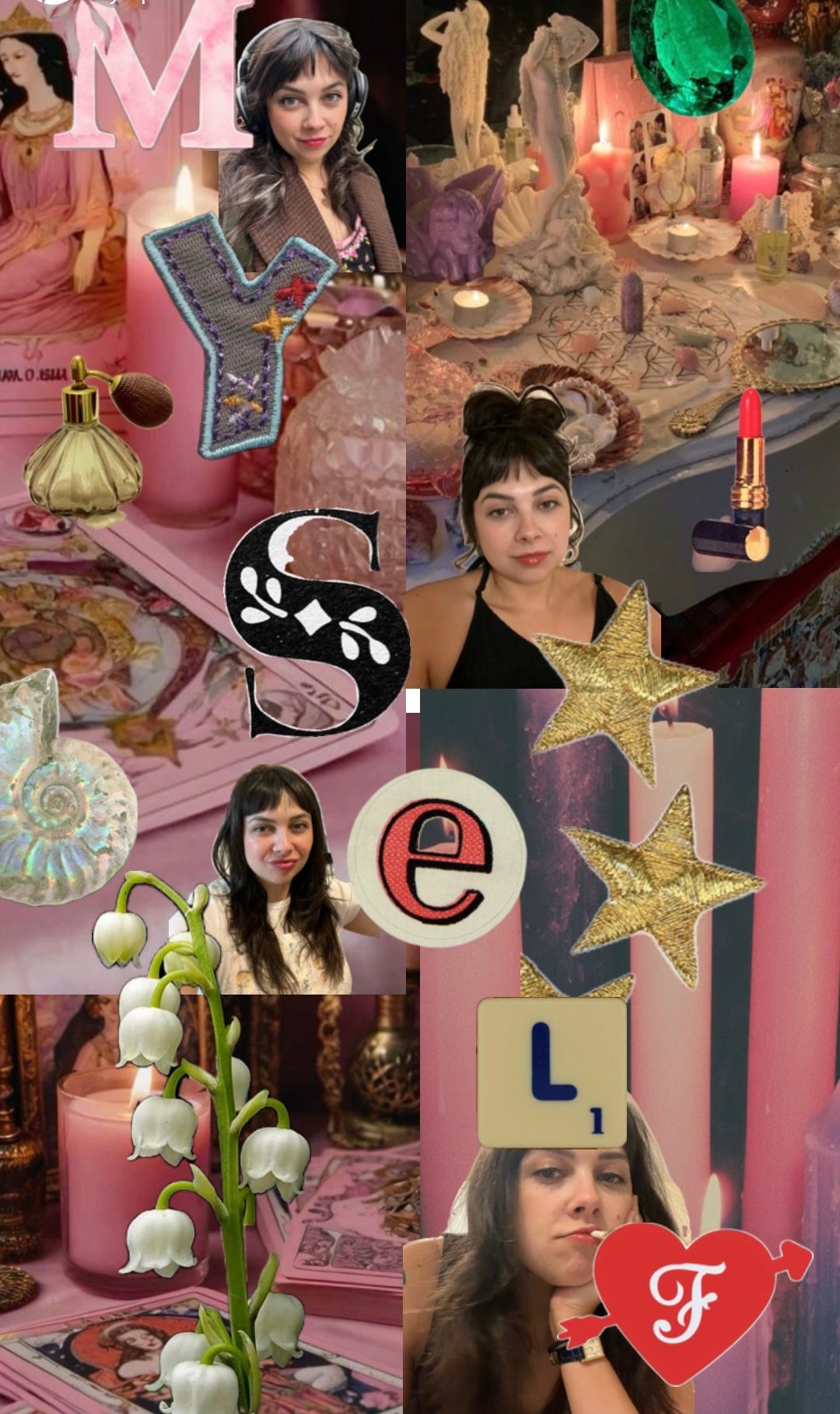
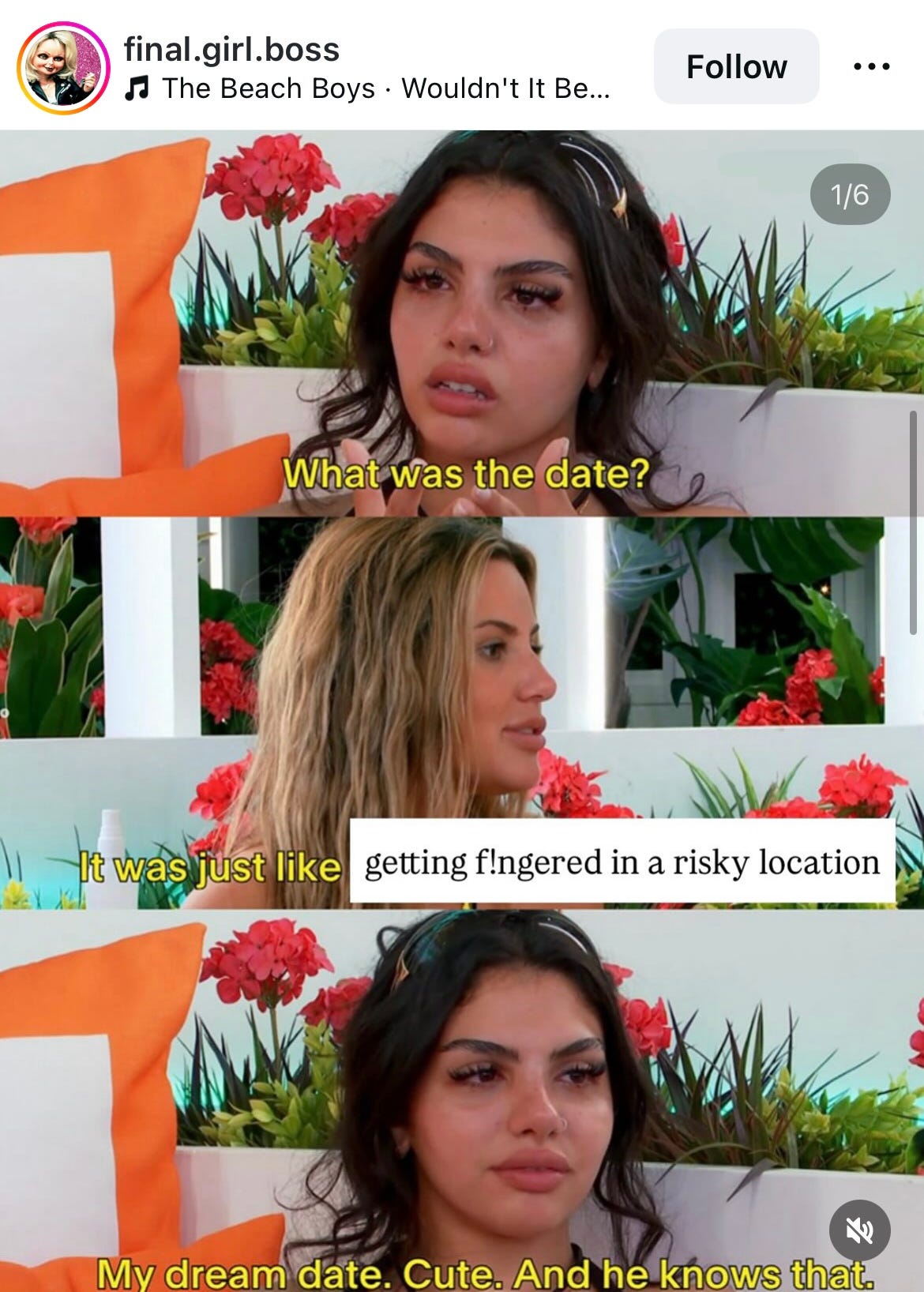
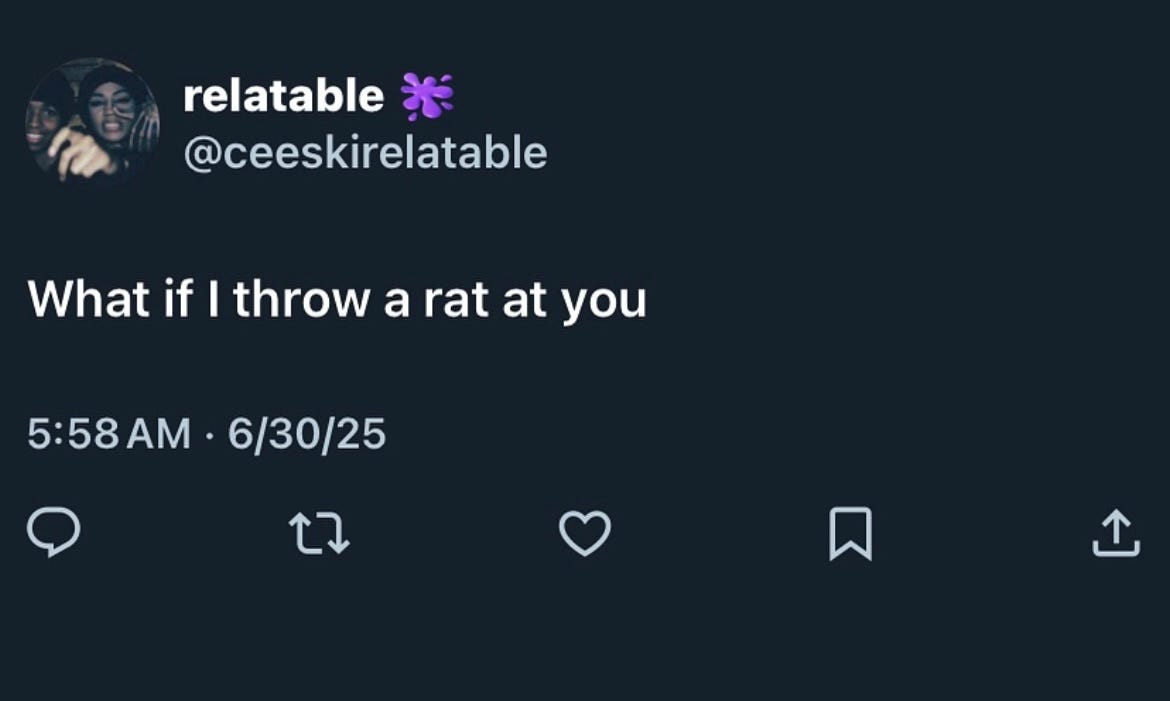

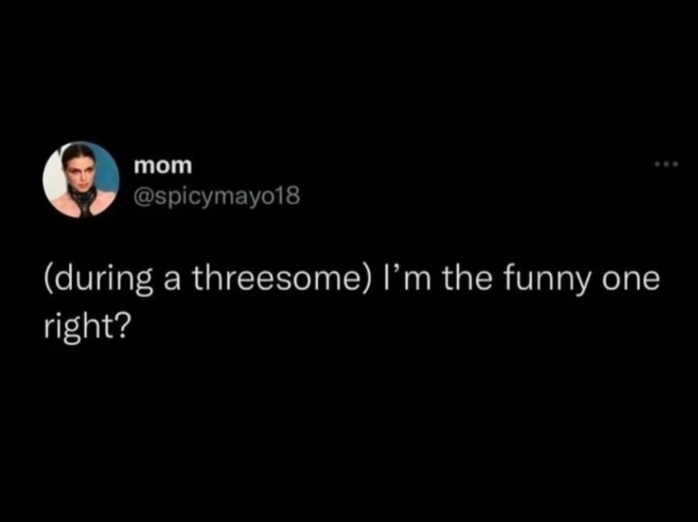

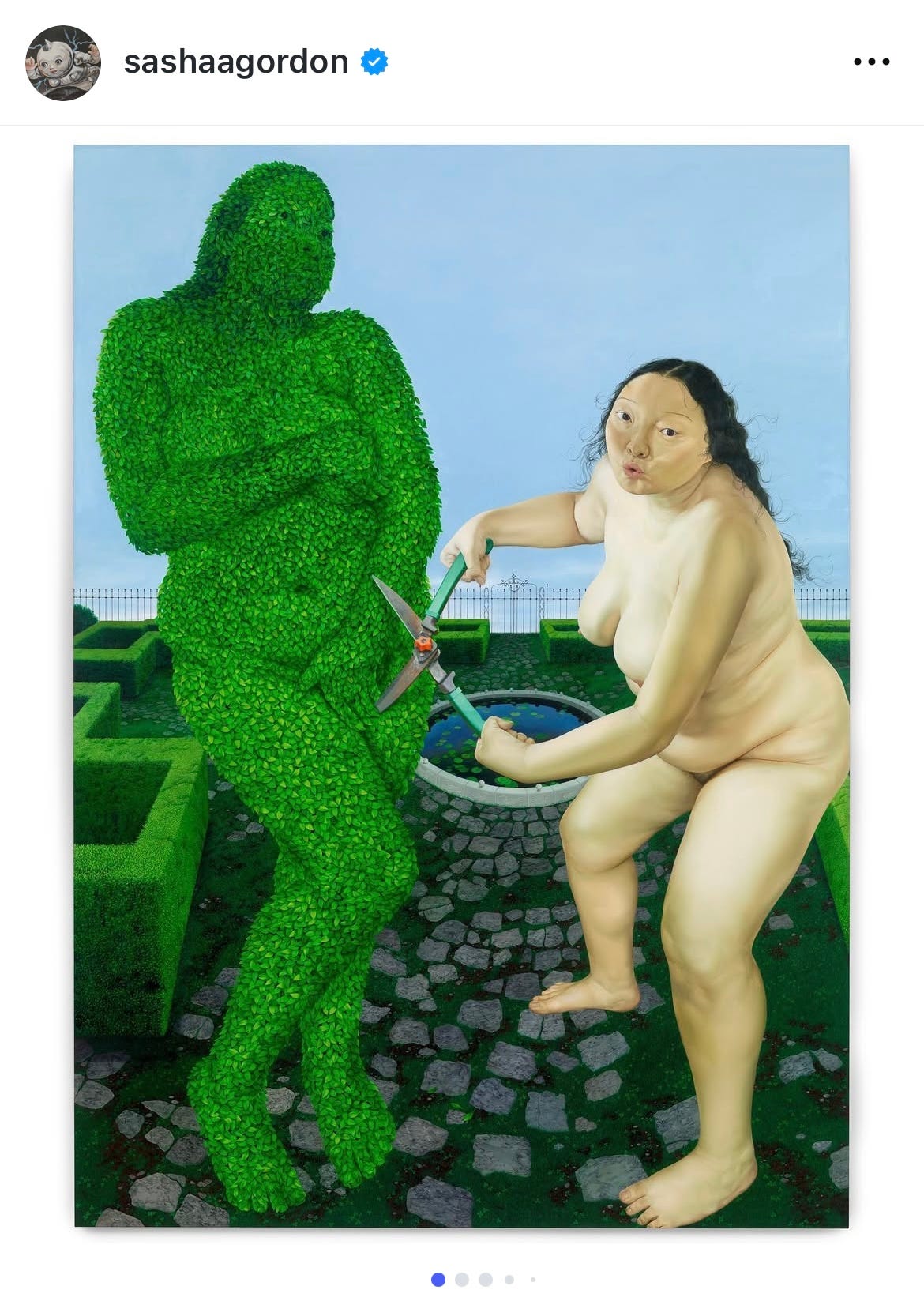
Whoever the fuck said this to you is clearly the narcissist and just projecting. Fuck that guy.
That’s the craziest thing I’ve ever heard. And on YOUR OWN COUCH?! Men are the worst. Also: need to see the tat of your own face. That shit is brilliant.